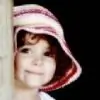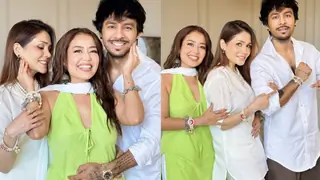Hey, our national song - Vande Mataram..
Sung by lata mangeskar, AR Rehman, Shankar Mahadevan, and many others...
Good tunes by all of them 😊
One article when i found searching for all those who sung the song:
Vande Mataram in all the eras
Post Independence era: In 1947, this song was included in the Hindi feature film
Amar Asha (Immortal Hope). As no gramophone record was cut and the film reels are not available, the details and the tune are lost to history. Pannalal Ghosh set the tune in a typical Bengali folk idiom for the film
Aandolan in 1951. It is sung by Manna Dey, Parul Ghosh, Sudha Malhotra, and Shaileshkumar. The film
Anandmath was made both in Bengali and in Hindi in 1952. The tune is still very famous and popular. It is composed using a mixture of Ragas Malkauns and Bhairavi, and is highly inspiring. Hemant Kumar and chorus have sung it in Aarati style with prominent mridanga accompaniment in the Bengali film
Mahabiplovi Aurobindo. The credit titles of the Hindi film
Leader (featuring Dilip Kumar) had
Vande Mataram sung in chorus in the background. Naushad gave the music. No gramophone record was cut and the singers were not identified. This is a very simple marching tune. In 1997, Usha Utthup sang it in Shyam Benegal's
Making of the Mahatma in the tune set by Vanraj Bhatiya. It is set to a tune in a style that resembles Pop music, and occurs as a background score during Gandhiji's famous long march in south Africa in the first decade of this century, where it appears a little anachronistic.
Both Jana Gana Mana and Vande Mataram have five stanzas each, and generally only first stanza is sung or played. As a result, most Indians have either forgotten, or are unaware of, the complete song. Both the songs were recorded specially by the Gramophone Company for playing on some 800 AIR [All India Radio] stations. It is believed that Ravi Shankar set the tune when he was a radio staff artist. Both vocal and instrumental versions were recorded, each lasting for about 58 seconds. This tune is very simple, and succeeds in creating a serene and solemn mood of worship of the motherland. Every morning, all the radio stations played Vande Mataram in the vocal version immediately after the signature tune. Later the same practice was observed on TV/Doordarshan too. These recordings are also played in public meetings and functions, especially in the South Indian states where Hindi has not been accepted as the national language.
In 1982, Mahendra Kapoor cut one 45 rpm disc in which he has sung both the songs using a chorus. Apart from this, no one has ventured to compose a fresh tune in the last 50 years. It continues to be played at the opening sessions of parliament and state legislative assemblies. Citizens are expected to stand at attention while it is sung or played in all public meetings.
5] Golden Jubilee celebrations of India's Independence and Vande Mataram
In 1997, India celebrated its 50th year of independence. In celebration, G Bharatbala reviving the words Vande Mataram (in Hindi "Maa Tujhe Salam") while launching A R Rahman's audio-video album. This album contains the Bankimchandra original Bande Mataram, sung beautifully in Raga Desh Malhar with wonderful tone and color to the instrumental sound. The song as played in the other tracks of the album has received widespread acceptance by the contemporary listening public, and its words have acquired a new currency all over India. But the song text is different from the traditional Vande Mataram in some crucial respects. The video shows citizens of all age groups with tricolor of different sizes in their hands, while some are shown trying to raise a huge flag lying on the ground. Nobody seems to have followed the guidelines for flag hoisting during the shooting of the video. The national flag, which is a symbol of the nation's prestige and pride, is used in a manner that makes it into a virtual toy or accessory. The tune shows a Western Michael Jackson type of influence, and it has become extremely popular all over the nation and in other countries where the video has been telecast. The composer Rahman has posed, sung and danced in Michael Jackson style for the video. On the eve and at midnight of 14th August 1997, his group gave a live performance at India gate, dancing Vande Mataram - Ma Tujhe Salam. The event was probably sponsored by the celebration committee of the government.
At the same time, a special session of Parliament was convened. Our MPs were to be seen standing and nodding their heads when Pandit Bhimsen Joshi sang it for over two minutes in the style of a classical music concert, with excellent accompaniment on tabla and harmonium. One of the points about which objections have been raised before Independence, and since, is that the government-sanctioned version played on AIR is without any accompaniment. In the following year, on 14th August 1998, Pandit Jasraj sang it at the same place, without instruments but with a chorus humming in the background while Panditji takes the centre-stage. On both occasions, our MPs have been shown clapping enthusiastically at the end. Do we ever clap after singing the Anthem? Is this the way in which we respect our National Anthem?
6] Vande Mataram at the turn of 20th century
Due to the massive success of this album, the same group launched another album Vande Mataram - 2 in 1999, with a music score by Ranjit Barot, son of yesteryear's famous dancer Sitaradevi. This album includes a reissued version of Lata Mangeshkar's Vande Mataram from the 1952 film Anandmath. The lyricist Mehboob wrote another lyric for Lata Mangeshkar (for the leading line, "Sujjalam, Suffalam, Malayyaj Sheetalam, Sasyya Shyyamalam Maataram") words easily borrowed - or marrowed? - from the sacred song of national pride. The remainder of the lyric, as before, is different and Lataji has sung wonderfully to the same old Anandmath tune for "Maa Tujhe Salam, Maa Tujhe Pranam." The lyricist appears to have conjoined the words "Salam" and "Pranam," though there is a world of difference between the two. In the same album Shubha Mudgal has sung the familiar Vande Mataram in a pop idiom, whereas Kausiki Chakravarty sings it like a lullaby.
Several musicians, composers and singers have re-presented the song recently in different styles and forms. Guru Kelucharan Mahapatra staged a ballet based on Vande Mataram during the Elephanta festival, and the song was sung by Ustad Rashid Khan. In one of the Indian Music Group's concert at St Xavier's college in Mumbai, Pandit Ram Narain played it on the Sarangi in concluding a recital. Anoop Jalota sang it in his latest album of Deshbhakti songs. On 15th August 2000, Hindukush released a new video album Vande Mataram in the voice of Sadhana Sargam.
7] Vande Mataram in the 21st century
The song Vande Mataram is now 125 years old, and has now entered the 21st century. In 1975, while celebrating its centenary, a conference was organized at Banaras in which books, monographs and proceedings devoted to the song were published. In 2000, the Vande Mataram Shatkottar Rajat Jayanti Samiti of Pune published a Marathi book on the song. The Society of Indian Record Collectors found over 100 recorded versions of the song and presented over 20 illustrated listening sessions to audience of various age groups in Maharashtra.
As usual, no political party (including the Indian National Congress) took any note of these activities. Hard-liners with slogans like "Garva Se Kaho...." and/or "Is Desh Men Rahana Hoga To Vande Mataram Kahana Hoga" did not seem to know about this event. Even Bengalis have failed to notice these activities, probably because of the last fifity years of communist rule in Bengal. The Rashtriya Aghadi Government announced the formation of a committee that would attend to issues concerning the song and its future but nothing has come of it since.
Musically speaking it seems that Indians will never forget this lyric even after another 125 years. This is clearly seen with the new compositions and renderings. From R N Tagore to A R Rahman and beyond, numerous tunes have been composed and no other song in Independent India has received so much attention. This is probably because we Indians do not consider this as the national song or Anthem. We treat it as the song of our culture, a 'Prateek' or living symbol. In Hindu culture, the mother is considered a God, and worshipping the mother through songs is an age-old tradition. Vande Mataram is one such song, which describes the motherland. That is why the song keeps reappearing again and again in different forms. It will be no great wonder if it gets set to an assortment of new musical idioms - even jazz, rock, rap or metal - in the 21st century. Its appeal and purpose will keep changing from time to time but the basic aspect of the "Ave Maria-Mother I bow to Thee" will remain. In this sense, then, all the tunes described above could be said to be well-justified and much appreciated.
Vande Mataram
Some interesting events before the song became popular nationwide
- Vande Mataram composed by Pujjyosri Bankim Chandra Chattopadhyay in 1875. Now it is established that the date was 7th November 1875. As per Hindu calendar Sj.Jadunath Bhattacharya was asked to set tune to this song just after it was composed.
- Sj.Gopal Chandra Dhar of Hooghly District, Bengal sung it in Raga Desh Malhar in 1876.
- The song was included in his novel Anandmath by the composer and was printed separately in 1882.
- In 1885, Prativa Devi, niece of Rabindranath Tagore, made a notation of the song which was published in Balak magazine.
- Sung in National Congress in 1896, at Beadon Square, Calcutta by Rabindranath Tagore and the song was declared to be recognized as the National song. Piano accompaniment with the song was given by Jyotindranath Tagore.
- Sj.Dakhina Charan Sen, a specialist in western tunes, sung the song in Calcutta Congress in 1901.
Edited by ans24us1 - 18 years ago





























